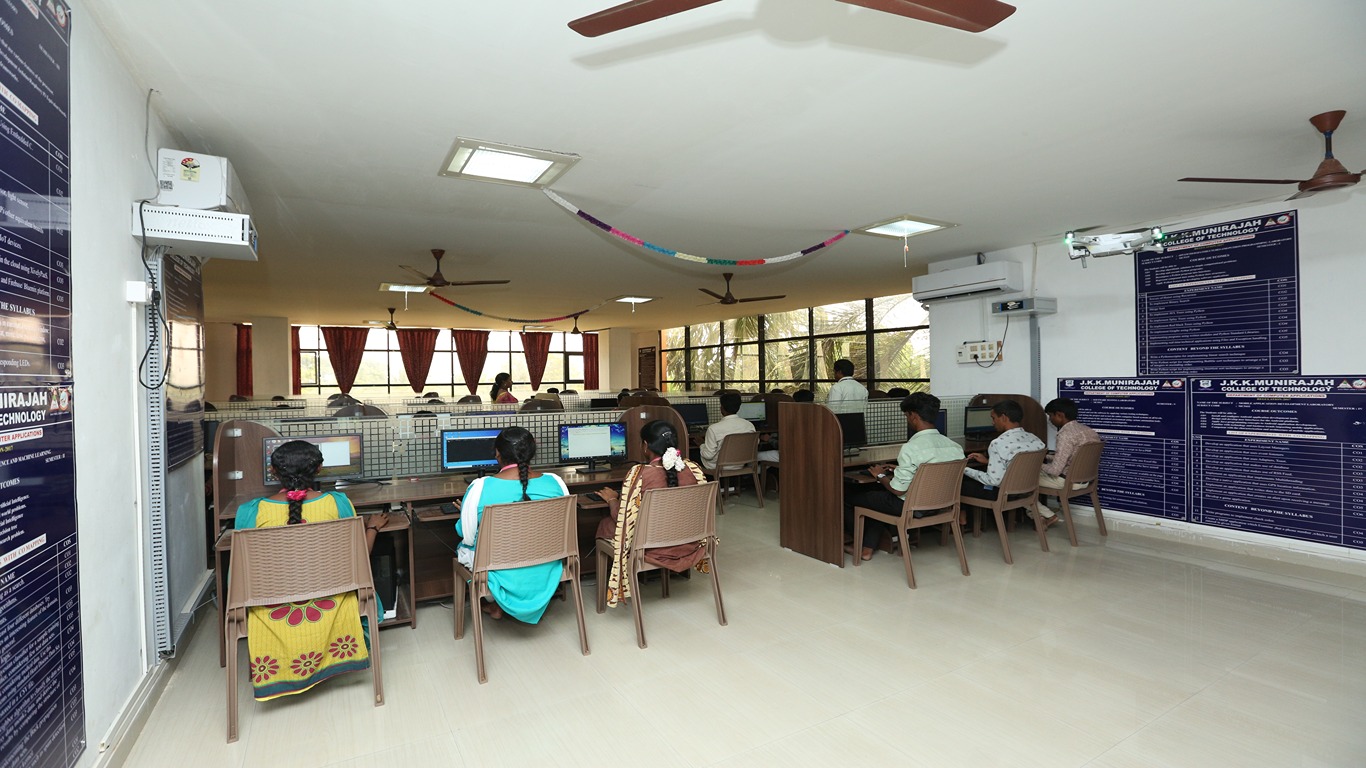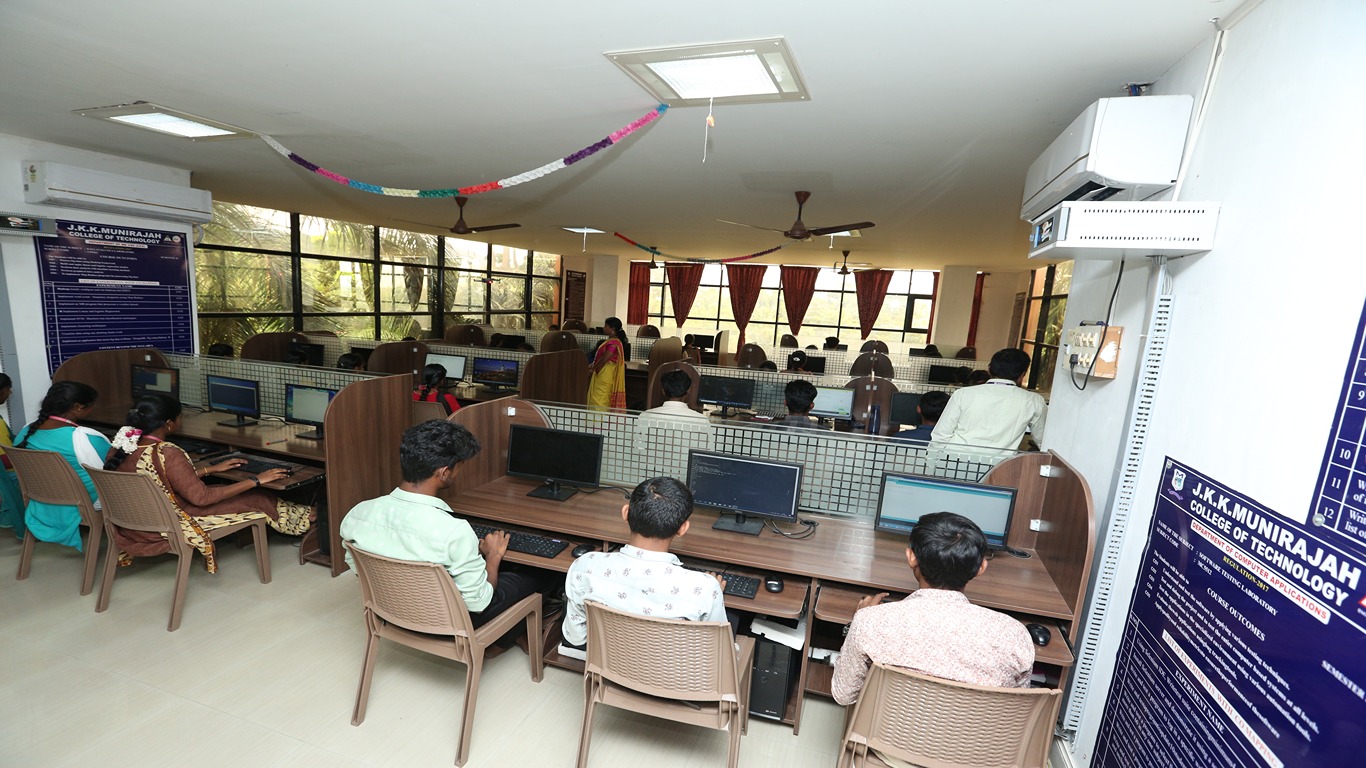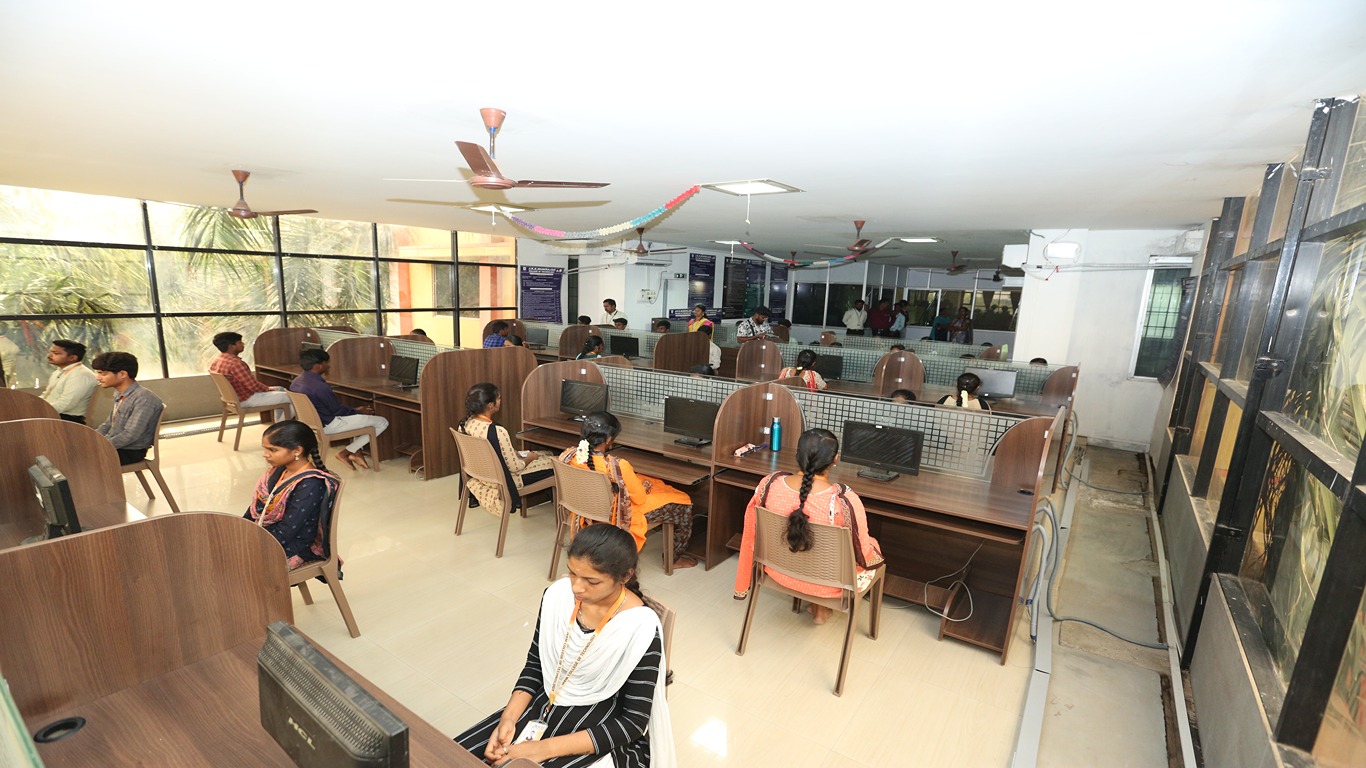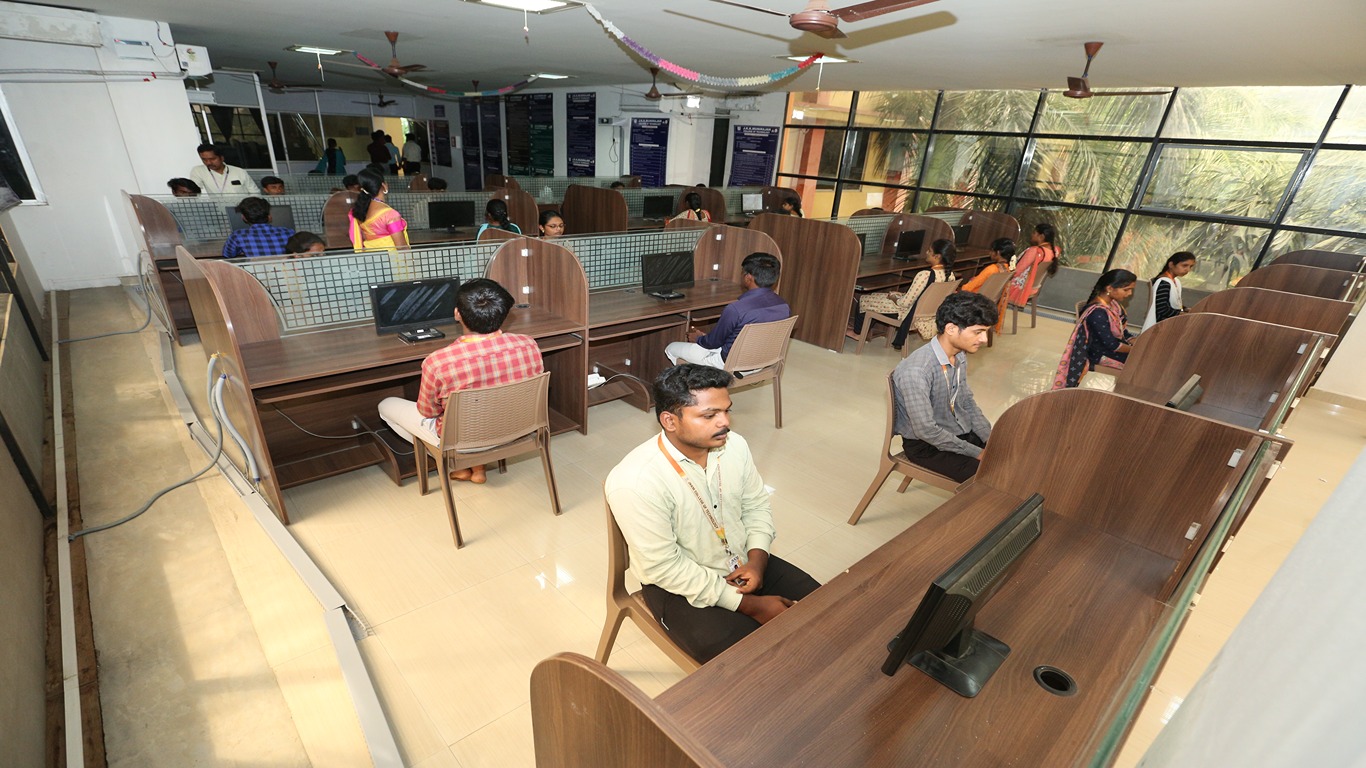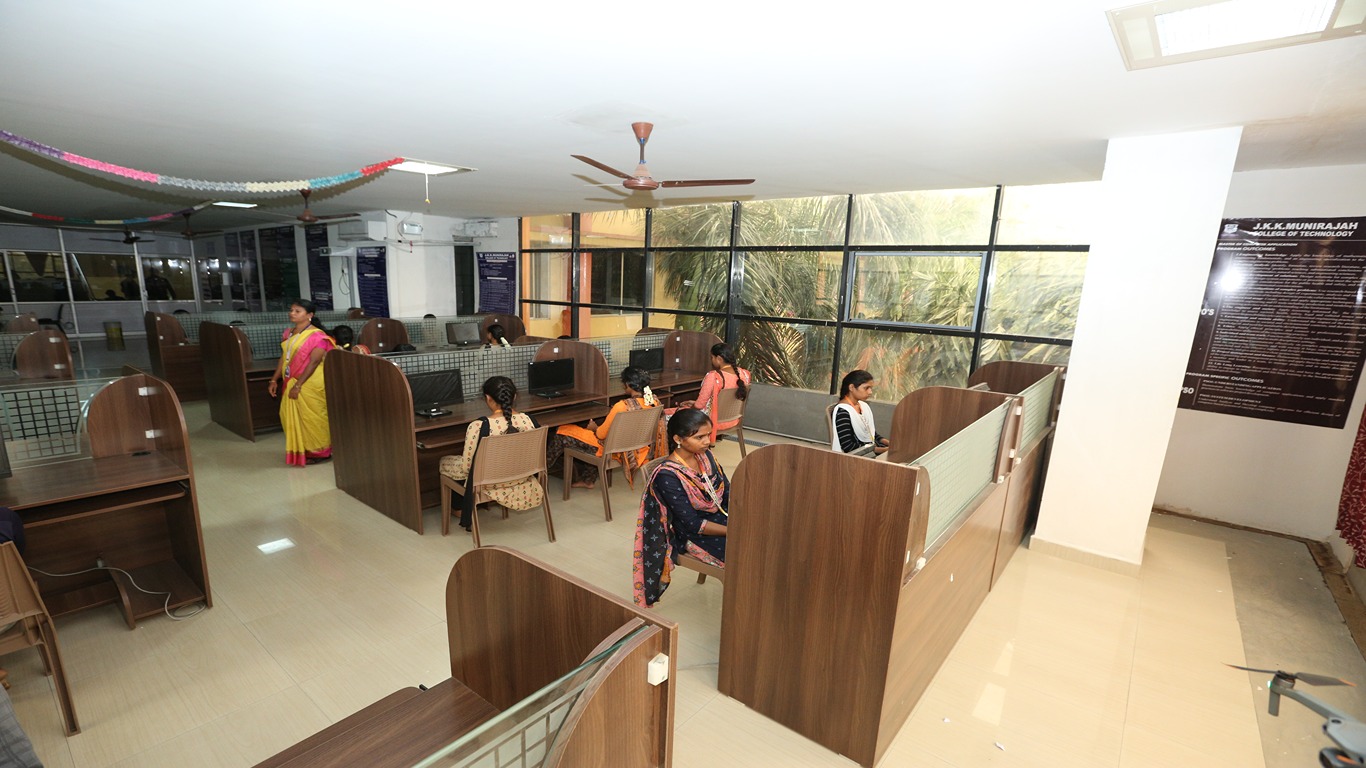Computer Application
What Is Master of Computer Applications?
Master of Computer Applications (MCA) is a 2-years (four semesters) professional Master's Degree in computer science awarded in India. The course is designed to meet the growing demand for qualified professionals in the field of Information Technology.
Why Should I Study MCA?
MCA professionals are in-demand in diverse industries, such as Engineering, IT, and Medical Sciences. Needless to say, all of the above industries need professionals with in-depth knowledge and expertise in computers.
Many companies often come up with job listings for MCA candidates to assign important job responsibilities to competent candidates. That means if you can grasp the right knowledge and gather the required expertise as an MCA candidate, then you would be able to fulfil your dreams of becoming a successful professional.
Current Intake: 30
Vision
To be the source of bringing out globally competent pioneering computing professionals, researchers, innovators and entrepreneurs and there by succeed contribute value to the knowledge-based economy and society.
Mission
To offer high-grade, value-based post- graduate and Doctoral programmers in the field of computer Applications.
To provide conducive environment so as to achieve excellence in teaching- learning and research and development activities.
To bridge the gap between industry and academia by framing curricula and syllabi based on industrial and societal needs.
To offer tasks for experiential technology- intensive knowledge through collaborative and interdisciplinary activities.
To facilitate students to nature skills to practice their professions competently meet the ever changing needs of society
PROGRAMME EDUCATIONAL OBJECTIVES (PEOs):
- Exhibit professional competencies and knowledge for being a successful technocrat.
- Adopt creative and innovative practices to solve real-life complex problems.
- Be a lifelong learner and contribute effectively to the betterment of the society.
PROGRAMME SPECIFIC OUTCOMES (PSOs):
- UNDERSTANDING APPLICATION: Demonstrate basic knowledge of computer applications and apply standard practices in software project development.
- SYSTEM DEVELOPMENT: Understand Analyze and Develop computer programs for efficient design of computer-based systems of varying complexity.
PROGRAM OUTCOMES (POs):
- Engineering Knowledge: Apply the knowledge of mathematics, science, engineering fundamentals, and an engineering specialization to the solution of complex engineering problems.
- Problem Analysis: Identify, formulate, review research literature, and analyze complex engineering problems reaching substantiated conclusions using first principles of mathematics, natural sciences, and engineering sciences.
- Design / Development of Solutions: Design solutions for complex engineering problems and design system components or processes that meet the specified needs with appropriate consideration for the public health and safety, and the cultural, societal, and environmental considerations.
- Conduct Investigations of Complex Problems: Use research-based knowledge and research methods including design of experiments, analysis and interpretation of data, and synthesis of the information to provide valid conclusions.
- Modern Tool Usage: Create, select, and apply appropriate techniques, resources, and modern engineering and IT tools including prediction and modeling to complex engineering activities with an understanding of the limitations.
- The Engineer and Society: Apply reasoning informed by the contextual knowledge to assess societal, health, safety, legal and cultural issues and the consequent responsibilities relevant to the professional engineering practice.
- Environment and Sustainability: Understand the impact of the professional engineering solutions in societal and environmental contexts, and demonstrate the knowledge of, and need for sustainable development.
- Ethics: Apply ethical principles and commit to professional ethics and responsibilities and norms of the engineering practice.
- Individual and Team Work: Function effectively as an individual, and as a member or leader in diverse teams, and in multidisciplinary settings.
- Communication: Communicate effectively on complex engineering activities with the engineering community and with society at large, such as, being able to comprehend and write effective reports and design documentation, make effective presentations, and give and receive clear instructions.
- Project Management and Finance: Demonstrate knowledge and understanding of the engineering and management principles and apply these to one’s own work, as a member and leader in a team, to manage projects and in multidisciplinary environments.
- Life-Long Learning: Recognize the need for, and have the preparation and ability to engage in independent and lifelong learning in the broadest context of technological change.
|
S.No. |
Faculty Name |
Qualification & Dept. |
Designation |
Experience |
|
1 |
Mrs. L.KARTHIKA |
M.C.A., |
ASSISTANT PROFESSOR |
5 Months |
|
2 |
Mrs.V.DEEPA |
M.C.A., |
ASSISTANT PROFESSOR |
6 Months |
| 3 | Mrs.R.VANITHAMANI | M.C.A., | ASSISTANT PROFESSOR | 2 Months |

